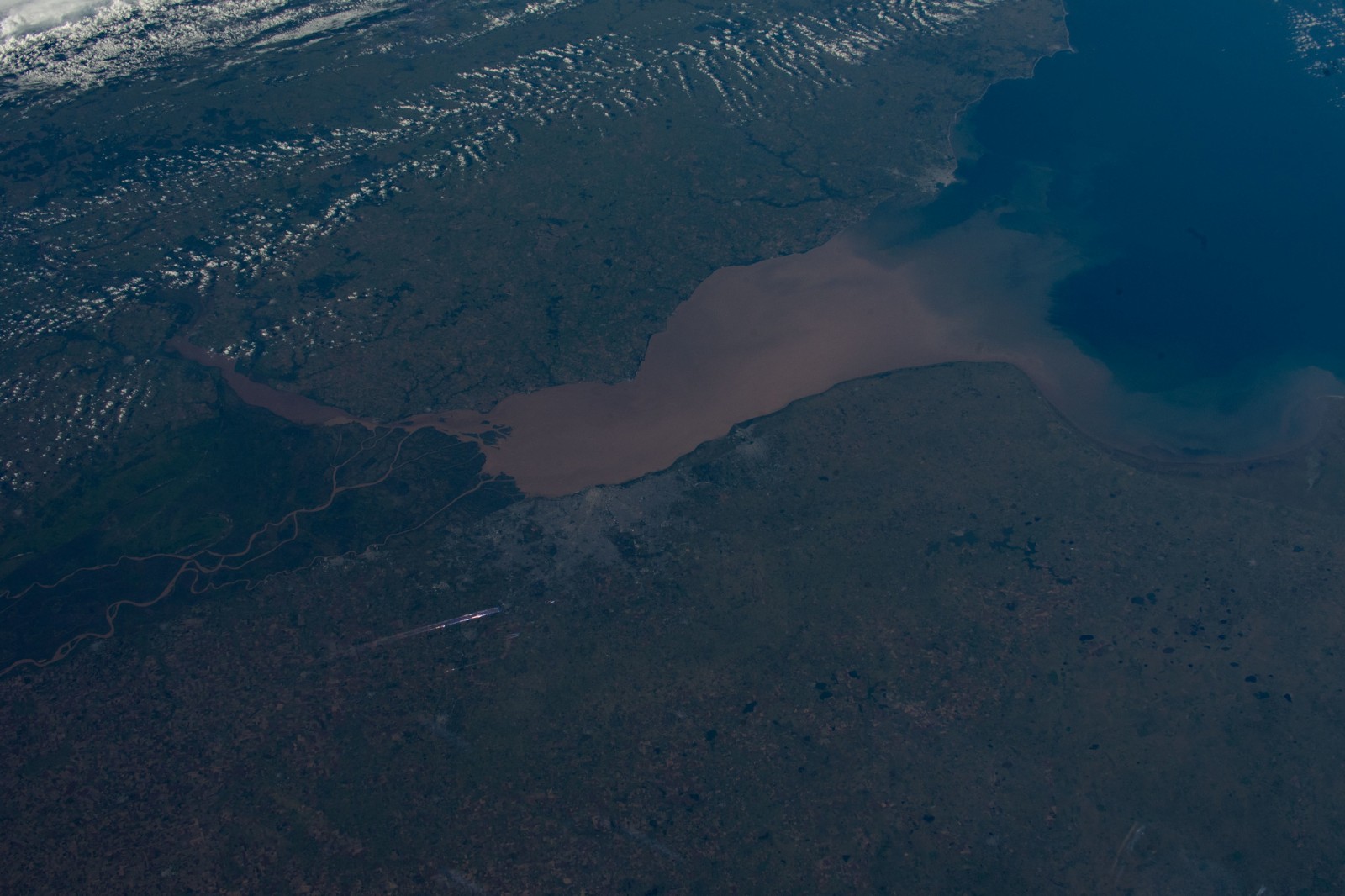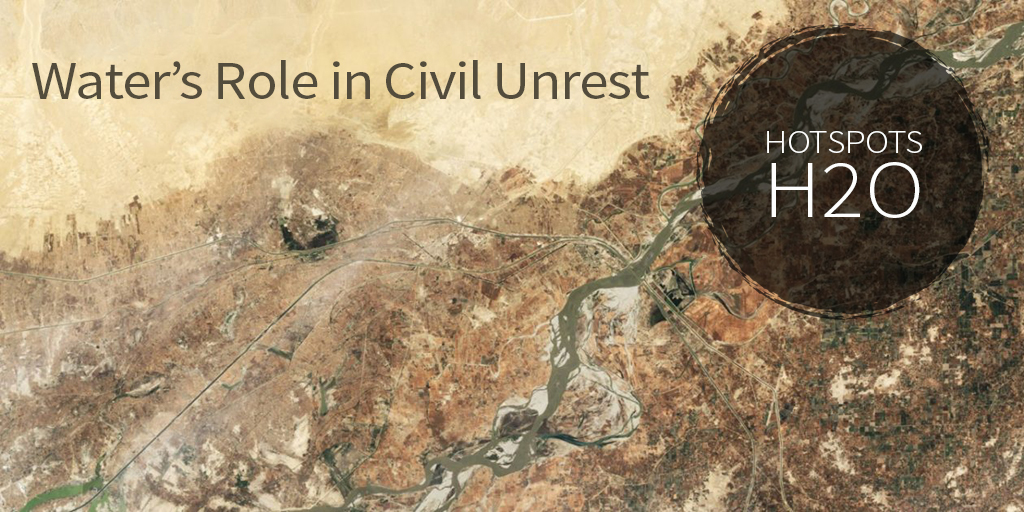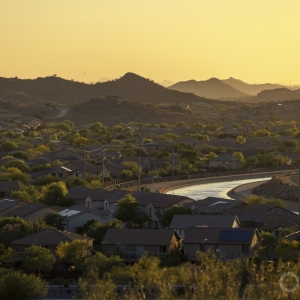
The Rio de la Plata | Photo: Nasa
By Zara Gounden & Fraser Byers, Circle of Blue – June 7, 2023
In Uruguay, a mounting crisis is unfolding as ‘Day Zero’ – when the public water supply is depleted – draws closer in Montevideo.
On May 31 the National Administration of State Sanitary Works (OSE) announced that, without significant rainfall, the city of Montevideo would run out of water by June 22. The capital city of 1.4 million residents has plunged into uncertainty, triggering demonstrations.
Desperate officials are taking extraordinary measures in response. The OSE is alleviating dependence on the country’s largest freshwater reserve, the Paso Severino, by adding salt water from the River Plate estuary into the public water supply.
Montevideo’s water emergency joins a growing list of major metropolitan areas affected by extreme weather events that lead to dire water shortages. The El Nino Southern oscillation in the Pacific, in combination with the effects of climate change, have led to a global surge in such Day Zero events.
In Cape Town, South Africa. Day Zero scarcity hounded the city in recent years. Public protests demanded more responsible water resource management and a shift in water allocation from agriculture, which was initially granted 40% of the total water reserves during the drought.
Last year, Day Zero occurred in Monterrey, Mexico. Taps in the city went dry. Tanker trucks became the primary means to provide water to communities. Public demonstrations over water shortages also occurred in major cities in Brazil, Iran, and India.
Montevideo’s strategy to add salt water to supplement and extend its fresh water supply may be globally unique. But – the high levels of sodium and chloride in the region’s tap water are more than double the limits suggested by the World Health Organization (WHO). Uruguay has waived taxes on imported bottled water, and doctors have been empowered to provide prescriptions for free bottled water to pregnant women and individuals with chronic illnesses. OSE has even begun drilling for groundwater inside city parks to provide nearby hospitals with reliable supplies.
Despite such urgent actions, organizers such as Federico Kreimerman, president of the workers union at OSE, called for a greater response to limit the effects of the drought. Speaking to Reuters, Kreimerman blamed the current circumstances on a confluence of factors – low rainfall, industrial overuse, and weak public investment. On Twitter he wrote: “The government cannot make it rain, but it can take measures so that workers are not the losers. Waive fees, regulate bottled water. Otherwise, the water crisis will increase social inequalities.”




